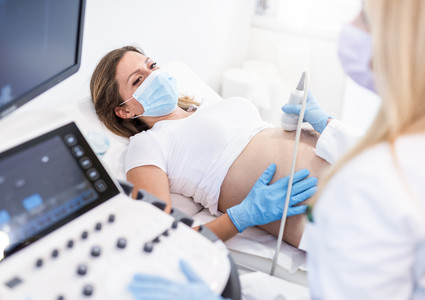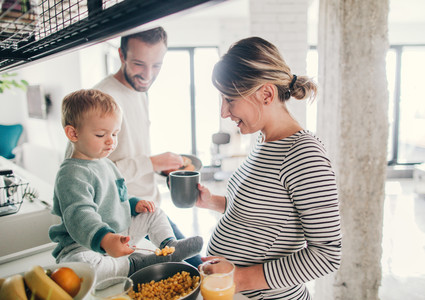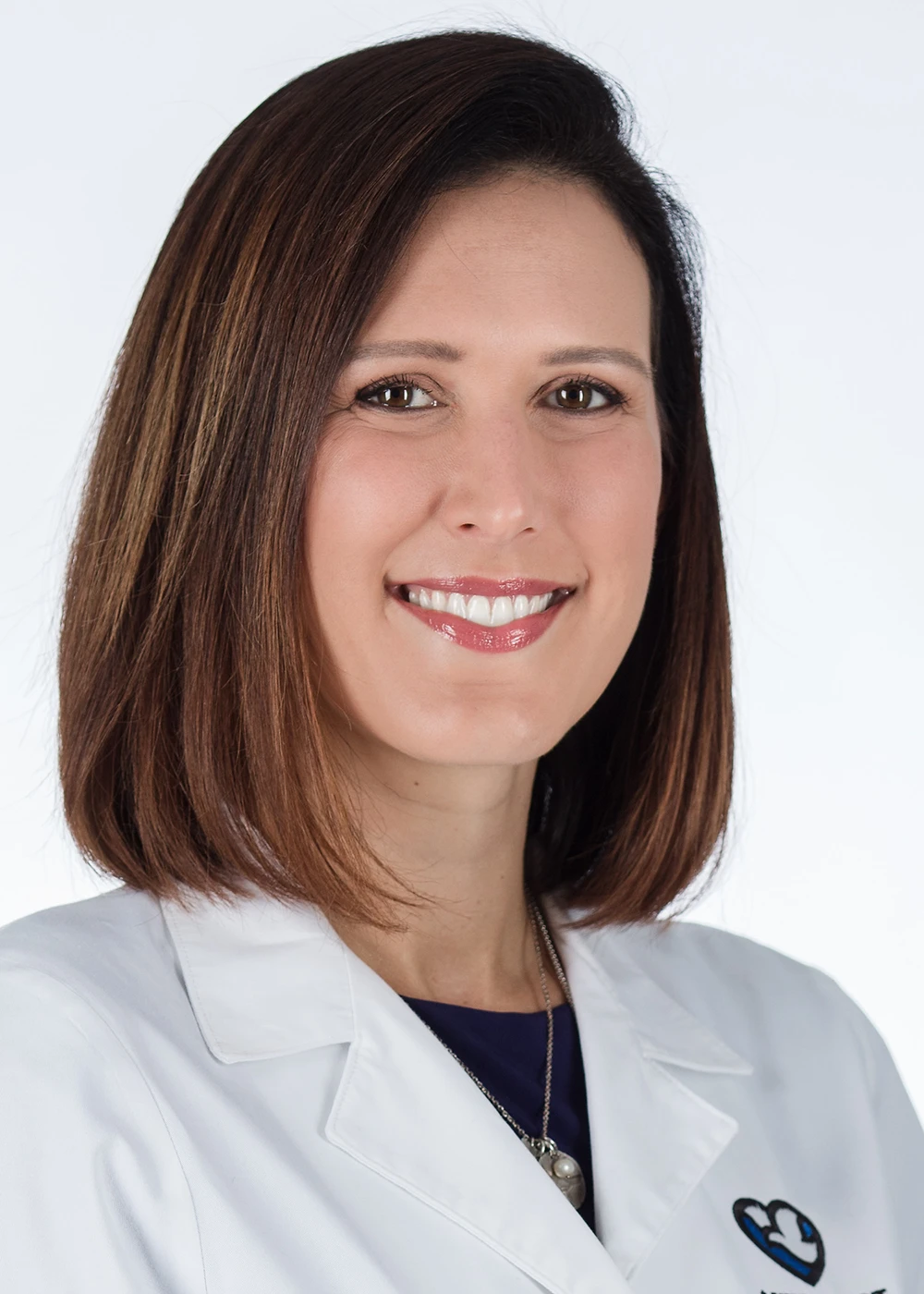Women's Health
COVID-19 and Pregnancy: More Answers, Still Unknowns
Published: July 20, 2020

So what do we know now? What risks do pregnant women face? Is it safe to have a baby shower or travel? Read on for answers.
FAQs: Pregnancy and COVID-19
Q: Are pregnant women who contract COVID-19 at higher risk for hospitalization?
A: Yes. Data gathered from January to June indicated that 31.5% of COVID-positive pregnant women were hospitalized compared to 5.8% of COVID-positive nonpregnant women. Pregnant women were also 50% more likely to be admitted to the intensive care unit (ICU) and 70% more likely to require mechanical ventilation. We already knew pregnant women are more susceptible to respiratory illnesses because of immune and physiological changes. This data mirrors what we’ve seen from SARS, MERS and seasonal influenza – that pregnant women are more likely to suffer more serious illness.
The data also shows that Black and Hispanic pregnant women were disproportionally affected by COVID-19 infections, and ICU admissions were more common among Asian, Hispanic, Latino and Black pregnant women. The data paints a sobering picture of the health disparities present during this pandemic.
Q: Are pregnant women more likely to die from COVID-19 than nonpregnant women?
A: As of now, there doesn’t appear to be an increased risk of death among pregnant women compared to nonpregnant women.
Q: Can COVID-positive pregnant women transmit the virus to baby in utero?
A: There have been some cases reported of the virus being transmitted through the placenta, but we currently believe this risk to be low. However, more study is needed.
Q: Are COVID-positive pregnant women more likely to miscarry or deliver preterm?
A: Most reports so far don’t indicate an increased risk of birth defects or miscarriage in the first trimester, even though both have been observed with other coronaviruses and infections. There has been a reported increase in preterm births among COVID-positive pregnant women. In most cases, this is due to the worsening health of the mother and the need to deliver for her benefit.
 Q: What precautions should pregnant women be taking during the pandemic?
Q: What precautions should pregnant women be taking during the pandemic?
A: The advice we’re giving might sound familiar – wear a mask, socially distance and practice good hand hygiene. But in pregnant women, this advice is especially critical.
We recommend you:
- Wear a mask while in public and when unable to socially distance
- Avoid large crowds, especially indoors
- Always keep hand sanitizer with you for when soap and water are not available
- Stay in contact with your obstetric provider, and continue your prenatal visits
Q: Is it safe to breastfeed if I have COVID-19?
A: Since my last update, breastfeeding while COVID-positive is still recommended unless the mother is too ill to nurse. Breastfeeding can deliver antibodies to baby and help protect them from respiratory infections.
If you choose to separate yourself while sick and intend to resume breastfeeding later, the CDC recommends that you pump through the duration of your illness to maintain milk supply. It’s recommended that you:
- Use a dedicated pump
- Wash your hands before touching breast pump and bottle parts
- Follow the manufacturer’s recommendations for proper pump cleaning after each use
- Have someone who is healthy feed the expressed breast milk to baby
If you have suspected or confirmed COVID-19 and choose to breastfeed, wash your hands before touching baby and wear a face mask while breastfeeding.
Q: I’m a pregnant essential worker. What advice do you have for me?
A: For pregnant women working in schools, public transportation, emergency services, food service, health care and other essential roles, staying home isn’t always an option. Follow the basic recommendations for masking, social distancing and hand hygiene. You may require more personal protective equipment based on your job. When possible, it’s preferable for nonpregnant first responders to care for patients with COVID-19 and for pregnant health care workers to limit their exposure to patients with confirmed or suspected COVID-19.
Q: I’m pregnant and was exposed to COVID-19. What should I do?
A: Contact your health care provider for further instructions. The decision to test for COVID-19 is based on the exposure, test availability, community spread and other local policies that may change over time. Since pregnant women are considered high-risk, you’ll likely be directed to test for COVID-19. In the meantime, self-quarantine at home if possible.
Q: With anxiety and depression on the rise during the pandemic, what does this mean for pregnant women?
A: Pandemic removed, one in seven pregnant women experiences anxiety and depression. Add in pandemic-induced social isolation, health concerns, economic difficulties and fears of the unknown, and we can understand why we’re seeing increases in anxiety and depression among pregnant women.
Depression and anxiety can increase a pregnant woman’s risk for:
- Poor weight gain
- Lack of follow-ups with providers
- Increased use of alcohol, tobacco or drugs
- Premature birth
- Baby being born too small or having low birth weight
- Decreased bonding with the newborn
- In rare cases, suicide
The good news is we have resources to help. The first step is telling your health care provider how you feel. Counseling or medication may be needed. You’ll also be screened during pregnancy and postpartum so we can help recognize a problem. Studies have shown that regular physical activity improves mental health, and there are also several free online resources to help with relaxation techniques or meditation. Stay connected with your family and friends – even if it’s virtually.
Q: What about traveling for a babymoon or family vacation? Does a “safe” vacation exist?
A: This is a tough one, and the answer will continue changing over time. If you’re pregnant and choose to travel, driving in your personal vehicle is your best option. If you do travel by air, wear a mask at all times and try to socially distance. Keep hand sanitizer near, and once you’re at your final destination, change your clothes and wash your hands and face. Avoid traveling to “hot spots,” and research your destination’s COVID-19 guidelines before leaving. The CDC is a great resource for updated travel guidelines and restrictions.
Q: Is it safe to have a baby shower?
A: It depends. Ask yourself the following:
- How many people will be in attendance?
- Will we be able to socially distance?
- Are any invitees high-risk?
If your baby shower guest list is over 10 people and social distance isn’t possible, I’d recommend a virtual shower. Regardless of high-risk invitees, you’re high-risk due to your pregnancy. You want to do what’s best to protect yourself and your baby. The good news is there are so many resources now on how to have a virtual shower – and your out-of-town guests would get to join as well.
You’re Not Alone
The best things you can do for you and your baby is mask, socially distance, practice hand hygiene and keep your prenatal appointments. If you have concerns about coming to an appointment, talk to your provider to discuss a plan that works for everyone. And know that at Methodist, our clinics are safe, and we’re doing everything we can to protect your health.
 Take heart in knowing you’re not alone during this time. While no one wants to give birth during a pandemic, I’ve gotten interesting feedback from families who have delivered over the last few months. They’ve told me the pandemic forced them to slow down, take notice of the small things and reassess priorities. Mothers who have children at home have told me of the quality time they were able to spend with their kids before the birth of a new sibling. Some mothers and their significant others have said that when they look back on the birth, they were glad to have special time in the hospital as a small family unit without the distraction of visitors. So while you may not have the birth you always dreamed of, we are dedicated to making it the best possible experience under these unusual circumstances.
Take heart in knowing you’re not alone during this time. While no one wants to give birth during a pandemic, I’ve gotten interesting feedback from families who have delivered over the last few months. They’ve told me the pandemic forced them to slow down, take notice of the small things and reassess priorities. Mothers who have children at home have told me of the quality time they were able to spend with their kids before the birth of a new sibling. Some mothers and their significant others have said that when they look back on the birth, they were glad to have special time in the hospital as a small family unit without the distraction of visitors. So while you may not have the birth you always dreamed of, we are dedicated to making it the best possible experience under these unusual circumstances.
As the pandemic continues, our understanding of how COVID-19 affects pregnant women and newborns will grow. If you are pregnant and have COVID-19 or are under investigation for COVID-19, you can help advance our understanding of the virus by signing up for the PRIORITY study. You can help make a difference for mothers and babies in our fight against COVID-19.
More Resources
- Read about how Methodist Physicians Clinic is keeping you safe during the COVID-19 pandemic.
- A Methodist pediatrician discusses the importance of child well checks.


